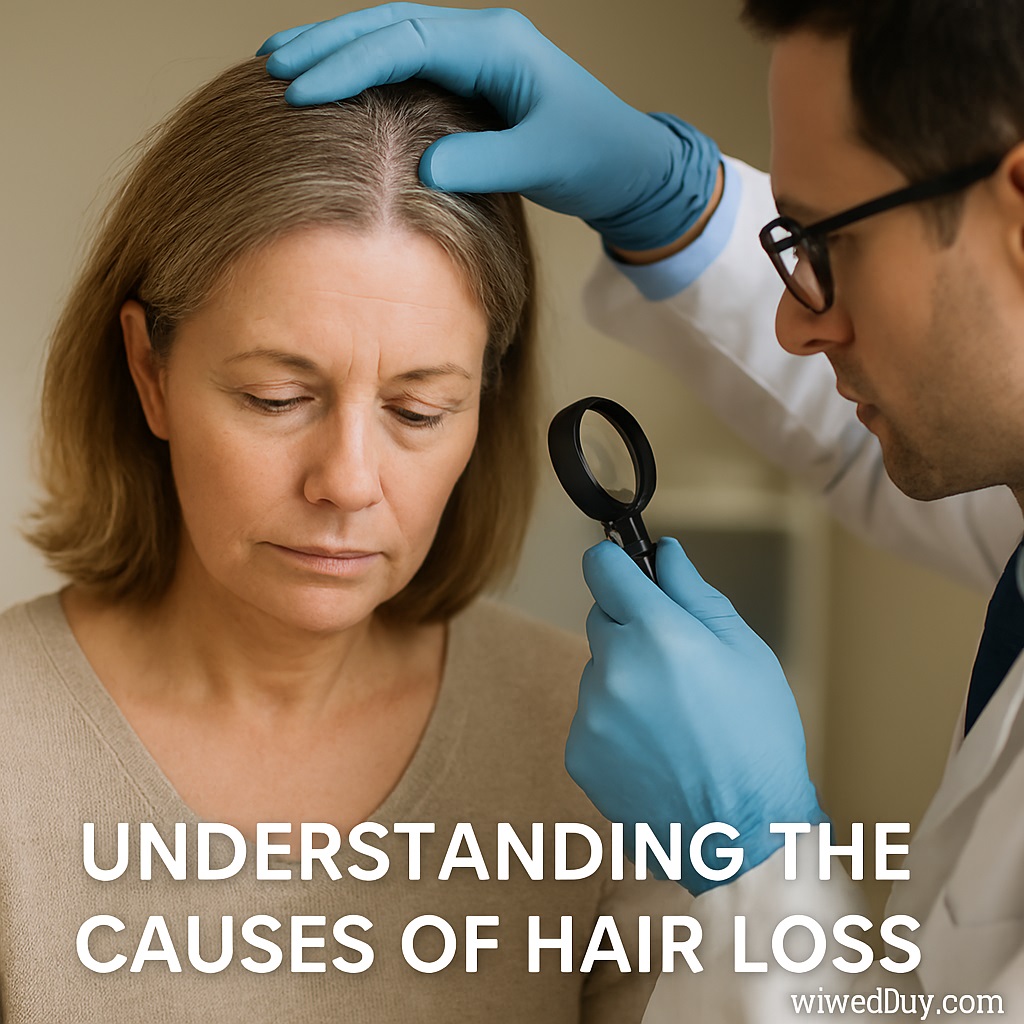Understanding the Causes of Hair Loss
Finding yourself with thinning hair can be a distressing experience. Understanding the various **causes of hair loss** is, therefore, the crucial first step toward finding an effective solution. This comprehensive guide will explore the many factors, from genetics to lifestyle, that can influence hair shedding and thinning.
Hair loss, or alopecia, is a complex condition that can affect anyone, regardless of age or gender. While some causes are genetic and permanent, others are temporary and can be reversed with the right approach. Let’s delve into the most common reasons behind hair loss and, consequently, explore how to identify what might be affecting you.
Genetic and Hormonal Causes of Hair Loss
In short, genetics play a major role in the most common form of hair loss: androgenetic alopecia, often called male or female pattern baldness. This condition is inherited, and as a result, it is driven by hormones that cause hair follicles to shrink over time.
Moreover, hormonal imbalances can trigger significant hair shedding. For example, conditions like thyroid disorders or polycystic ovary syndrome (PCOS) can disrupt the hair growth cycle, leading to noticeable thinning. Ultimately, identifying and treating these underlying medical conditions is crucial for hair restoration.
Lifestyle and Health Factors Behind Hair Loss
Stress and Medical Conditions
To illustrate, significant physical or emotional stress can lead to a type of temporary hair loss called telogen effluvium. This happens when a stressful event pushes a large number of hair follicles into a resting phase, resulting in noticeable shedding a few months later. Fortunately, this condition is often temporary, and hair growth typically resumes once the stressor is managed.
In addition, certain autoimmune diseases, such as alopecia areata, can cause the body’s immune system to mistakenly attack hair follicles. This leads to patchy hair loss. What is more, other health conditions can also contribute to hair loss. For a detailed list of related health conditions, you can consult a reputable resource like the Mayo Clinic’s guide on hair loss causes.
Nutritional and Environmental Causes of Hair Loss
A lack of essential vitamins and minerals can severely impact the health of your hair. For instance, iron deficiency, in particular, is a frequent cause of hair thinning. Other crucial nutrients include zinc, biotin, and Vitamin D. Therefore, maintaining a balanced diet rich in these nutrients is vital for healthy hair.
Rapid weight gain or loss can also stress the body, potentially leading to temporary hair loss. This is particularly common after bariatric surgery. The hair usually grows back once your weight stabilizes.
Frequently Asked Questions
Ready to take the next step towards hair restoration?




